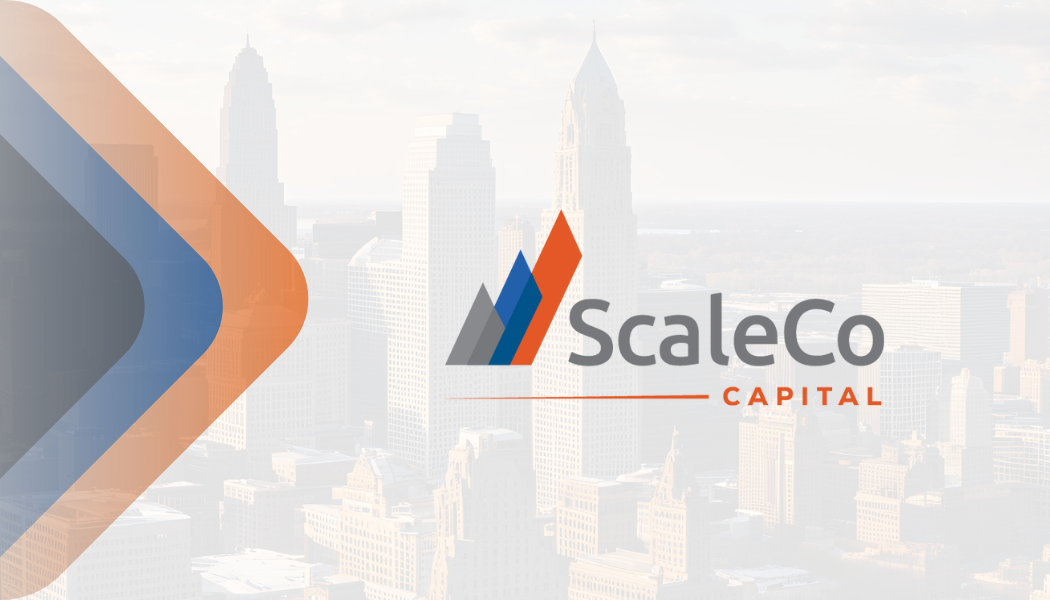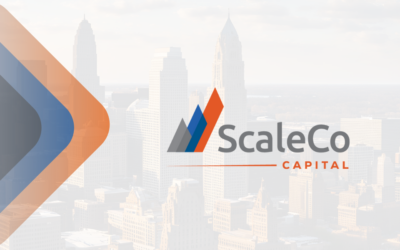 November 20, 2025 • Articles / Resources
November 20, 2025 • Articles / Resources
Business Owner Exit Options: Finding the Right Buyer
For small to mid-size business owners, planning an exit is one of the most significant decisions you’ll ever make. After years of building and growing your company, choosing the right buyer isn’t just about maximizing financial returns, it’s about finding a partner who understands your vision, respects your legacy, and aligns with your personal goals for the future.
The exit landscape offers several distinct buyer profiles, each with unique advantages and considerations. Understanding these options will help you make an informed decision that serves both your financial objectives and your values.
Understanding Your Buyer Options
Family Transfer or Ownership Succession
For many business owners, passing the company to the next generation represents the ideal scenario. Family succession allows you to keep your legacy within the family while potentially maintaining some involvement in the business you’ve built. This option often provides emotional satisfaction and continuity for employees, customers, and the community.
However, this path isn’t always viable. Not every family member has the interest, capability, or desire to take over the business. If your children have pursued different careers or the business requires specialized expertise your family doesn’t possess, you’ll need to consider alternative exit strategies.
Management Buyouts and Individual Buyers
Your existing management team or an individual entrepreneur may express interest in purchasing your business. These buyers often have the advantage of already understanding your operations, culture, and customer relationships.
The primary challenge with this buyer profile is financing. Management buyouts and individual buyers typically lack sufficient capital for a full cash transaction. As a result, they rely heavily on seller financing, where you essentially become the bank. This arrangement means receiving a smaller portion of your proceeds at closing, with the remainder paid over several years, sometimes five to ten years or more.
This financing structure introduces several important considerations. Your future payments depend entirely on the company’s continued success under new leadership, meaning you maintain significant financial exposure to the business well after transitioning out. If the company underperforms or encounters operational difficulties, your remaining payments could be substantially reduced or eliminated entirely.
In some cases, you may need to resume control of the business, a scenario that can create confusion among customers, employees, and vendors, potentially diminishing the value you’re trying to protect. Additionally, you’ll likely need to remain involved longer and more deeply than anticipated to help ensure the business generates sufficient cash flow to fund your deferred payments. This extended involvement can delay your intended exit and limit your ability to pursue new opportunities.
Strategic Buyers
Strategic buyers are established companies in your industry or adjacent markets looking to expand their footprint, capabilities, or market share. These buyers, which may include competitors or complementary businesses, often have access to institutional funding or efficient capital sources.
Strategic acquisitions can command premium valuations, particularly when your business offers unique technology, customer relationships, or market position. However, these transactions typically focus on cost synergies, which is often a polite way of saying headcount reductions and operational consolidation. Your existing management team, including key employees who helped build your business, may face uncertain futures.
Many business owners find this prospect emotionally difficult, especially when they’ve cultivated strong relationships with their team over many years. Additionally, strategic buyers usually prefer 100% ownership and lack the capital structure flexibility to offer you an ongoing equity stake for additional upside. If you’re interested in maintaining partial ownership to participate in future growth, strategic buyers may not accommodate this preference.
Fundless Sponsors and Search Funds
Fundless sponsors and search fund entrepreneurs represent a relatively newer category of buyers. These are often MBA graduates or experienced investment professionals who want to acquire and operate a business.
These buyers typically bring strong analytical skills and investment acumen to the table. However, it’s important to understand how their acquisition model works and what it means for your transaction timeline and process.
Many fundless sponsors must raise capital after identifying your business, which introduces additional complexity. This means bringing other parties into the transaction, including high net worth investors, family offices, or institutional sponsors, each with their own due diligence requirements and approval processes. When funding must be sourced on a deal-by-deal basis, the path to closing becomes longer and requires more coordination as the buyer assembles financing commitments.
It’s worth noting that an increasing number of search funds now have committed capital or pre-identified funding sources, which can significantly streamline the process. When evaluating these buyers, ask about their capital structure upfront to understand what resources they have readily available.
Considerations for Business Owners
Beyond capital, consider the operational resources and infrastructure the buyer brings to support your business post-transaction. While these entrepreneurs often possess strong financial and strategic capabilities, they may be earlier in their careers and have different levels of operating experience compared to established private equity firms or strategic buyers. This doesn’t preclude a successful partnership, but it’s an important factor to discuss openly.
You may also find yourself engaging with multiple potential funding sources during their capital-raising process, which requires additional time and energy. Understanding this dynamic from the outset helps you set appropriate expectations for timeline and involvement.
The key is having transparent conversations early about their funding status, operational support capabilities, and realistic timeline to closing. This allows you to make an informed decision about whether this buyer profile aligns with your priorities and transition goals.
Private Equity
Private equity firms represent a distinct category of financial buyers, and they’ve become increasingly active in the small to mid-size business market in recent years. Understanding what sets them apart helps explain why many business owners ultimately choose this exit path.
Committed Capital and Certainty
Private equity firms raise funds from institutional investors, including pension funds, endowments, and family offices, before identifying acquisition targets. This means they have capital ready to deploy. Unlike individual buyers or fundless sponsors who must scramble for financing, private equity firms can move decisively when they find the right opportunity. This translates to faster closings, less uncertainty, and greater likelihood that your deal reaches the finish line.
Streamlined Transaction Process
With committed capital and experienced deal teams, private equity buyers can execute transactions efficiently. They’ve closed dozens or even hundreds of acquisitions, so they understand the process intimately. While all transactions require thorough diligence, private equity firms can typically move from letter of intent to closing in less than 90 days. This speed reduces your deal fatigue and minimizes the period of uncertainty for you, your employees, and your customers.
Strategic and Operational Expertise
Contrary to outdated stereotypes, modern private equity firms aren’t simply financial engineers. They bring operational expertise and strategic resources that can genuinely accelerate your business’s growth. In addition to their own direct experience, most firms maintain networks of seasoned executives, industry advisors, and service providers who can help enhance operations, enter new markets, implement technology, and scale more efficiently.
For many business owners, this represents an opportunity to see their company achieve its full potential, something that’s deeply satisfying even if you’re no longer the majority owner.
Flexibility for Your Transition
Private equity firms understand that business owners have different goals. Some are ready to retire completely and want a clean exit. Others prefer to stay involved during a transition period to ensure continuity and help the new team succeed. Still others want to retain significant equity and continue leading the business, participating in its next chapter of growth.
Private equity buyers can accommodate all these preferences. Their capital structures are designed with flexibility, allowing you to sell a majority stake while retaining 10% to 40% equity ownership if desired. This “rollover equity” lets you benefit from future value creation, potentially generating returns that dwarf your initial exit proceeds, the coveted second bite of the apple.
Continued Wealth Generation Potential
This aspect deserves special emphasis. When you sell to a private equity firm and roll over a portion of your equity, you’re essentially making an investment in your company’s future alongside sophisticated investors. The private equity firm will typically target an exit within three to seven years, at which point your retained equity will be sold.
If the business grows substantially during this period, and private equity firms are strongly motivated to make this happen, your rollover equity can multiply several times over. It’s not uncommon for business owners who rolled over 20% to 30% of their equity to receive more from the second sale than they did from their initial exit. This structure aligns everyone’s incentives toward maximizing long-term value rather than short-term cost-cutting.
How ScaleCo Capital Approaches Partnerships Differently
At ScaleCo Capital, we recognize that every business owner’s situation is unique. Your motivation for selling, your vision for your company’s future, and your personal goals all differ from the next owner’s. Success isn’t one-size-fits-all, and we don’t pretend it is.
Our expertise and passion lie in transforming proven businesses into platforms for sustainable, lasting growth. We’re looking to build upon the legacy you’ve created, maintaining the culture, values, and relationships that made your business successful in the first place.
Whether you’re seeking a complete exit to enjoy a well-earned retirement, or you want to maintain meaningful ownership for that second bite of the apple through continued partnership, we work to create arrangements that align with your specific goals. Perhaps you want to stay on as President or CEO for several more years. Maybe you’d prefer an advisory role. Or you might be ready to step away entirely, confident that your team and customers are in good hands.
The right fit matters, not just for the transaction, but for the years that follow. We’re committed to building genuine partnerships that honor your vision of success, whatever form that takes for you and your family.
Making Your Decision
Choosing the right buyer requires honest reflection about your priorities:
Financial security: Do you need maximum cash at closing, or can you afford to take some chips off the table while betting on future growth?
Timeline: How quickly do you need or want to exit? Can you tolerate a longer, uncertain process?
Legacy: How important is preserving your company’s culture, brand, and team?
Involvement: Do you want to stay involved, and if so, for how long and in what capacity?
Risk tolerance: Are you comfortable with seller financing risk, or do you prefer certainty?
There’s no universally “right” answer, only the right answer for you. Understanding the buyer landscape and being clear about your own priorities will help you navigate this significant transition successfully.
The business you’ve built represents years of hard work, sacrifice, and achievement. It deserves an exit strategy that reflects those efforts and positions both you and your company for success in the next chapter.
About ScaleCo
ScaleCo Capital is a Cleveland-based control investor in companies with less than $5 million of EBITDA headquartered in the Great Lakes region. ScaleCo has made over 22 platform investments and 25 add-on investments. ScaleCo collaborates with companies in the fields of business services, tech-enabled services, value-added distribution and assembly, and training and compliance, providing operational expertise and strategic resources to enhance their growth potential and develop long-term value. To learn more, visit scaleco.com.
